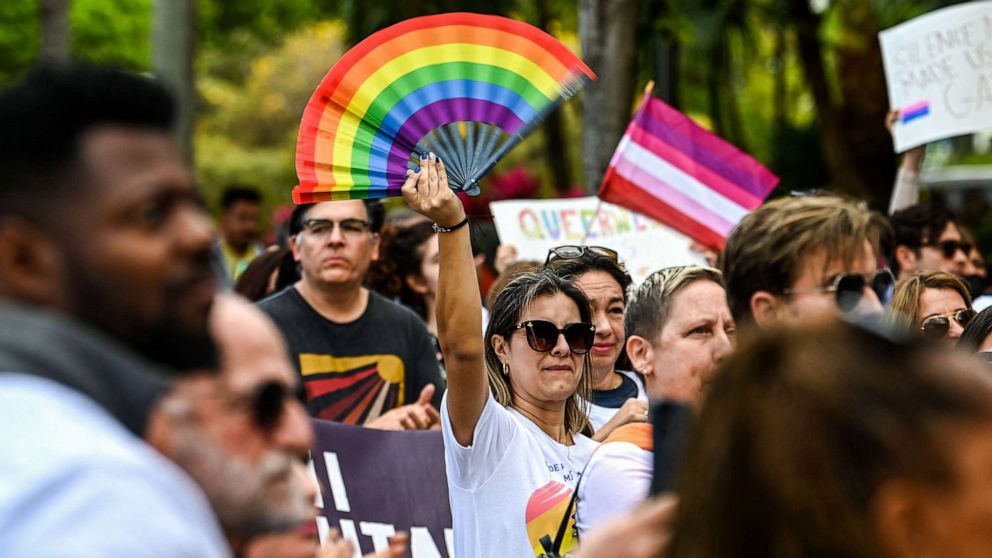Florida's controversial 'Don't Say Gay' bill: What's inside the proposed law
Florida's Parental Rights in Education bill, dubbed the "Don't Say Gay" bill by LGBTQ activists, is on Gov. Ron DeSantis' desk awaiting his signature.
Meanwhile, debate continues on this legislation and what it would mean for schools, teachers, students and parents.
The bill can be read in full here.
What does the 'Don't Say Gay' legislation exactly say?
Classroom instruction on "sexual orientation or gender identity may not occur in kindergarten through grade 3 or in a manner that is not age-appropriate or developmentally appropriate for students in accordance with state standards," according to the bill's language.
However, the legislation does not make clear what is "age-appropriate or developmentally appropriate" because state standards for sexual orientation and gender identity are almost nonexistent for many grades.
The bill has the potential to reach beyond third grade because of its vague language, opponents warn.
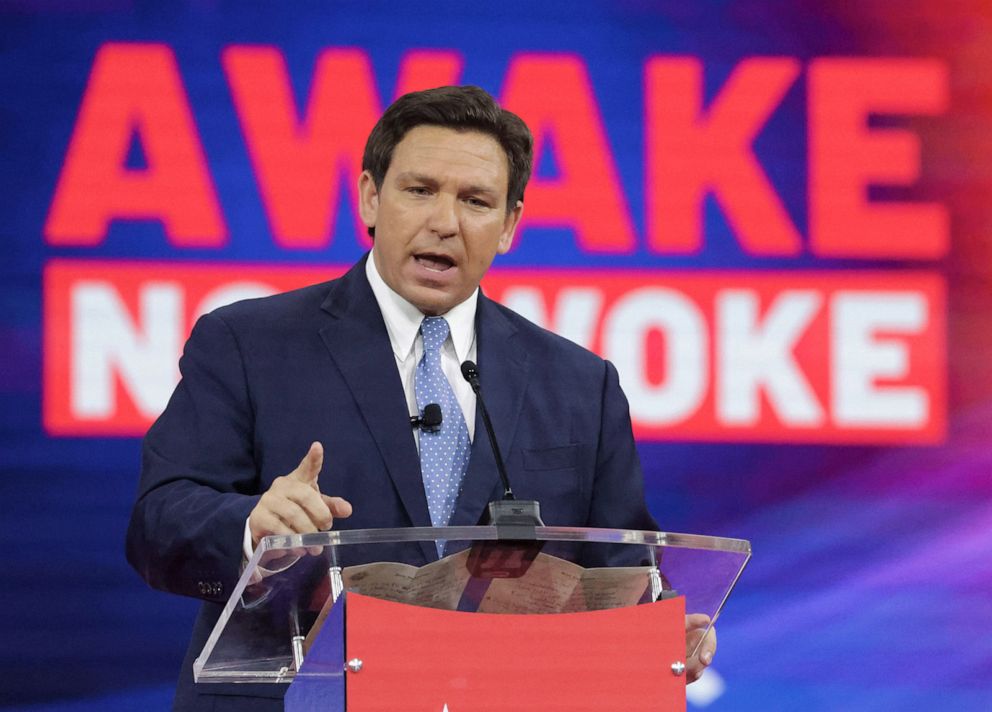
The legislation also states that the Florida Department of Education would have to update its standards in accordance with the requirements, so it is unclear how far the ban would extend.
The bill would also states that it would prohibit "discussion" about sexual orientation and gender identity "in certain grade levels or in a specified manner."
"This bill is so purposefully vague," said Democratic Florida state senator Tina Polsky on the Senate floor during debate. "Some of us have been teachers and we should listen to them because they're the experts. You're tying their hands to conversation that will flow from instruction."
Bill supporters say it will not ban people from talking casually about LGBTQ topics in schools.
Parents could sue a school district if they believe there is a violation of any of these requirements or restrictions. Parents may also request a special magistrate to determine facts relating to the dispute and to recommend a solution to the State Board of Education.
The costs to do that would be the responsibility of the district, according to the legislation.
The bill does not define sexual orientation or gender identity. Polsky proposed an amendment to establish that the bill would restrict curriculum on all sexual orientations and gender identities -- including heterosexual and cisgender identities.
"If we're going to go so far as to ban any instruction of these concepts in K-3 and elsewhere, if not appropriate, then we should at least know what we're talking about," said Polsky during the March 7 debate.
Defining those terms, including "heterosexuality, homosexuality or bisexuality" and "gender-related identity, appearance or behavior," could clear up what the bill would ban, she said.
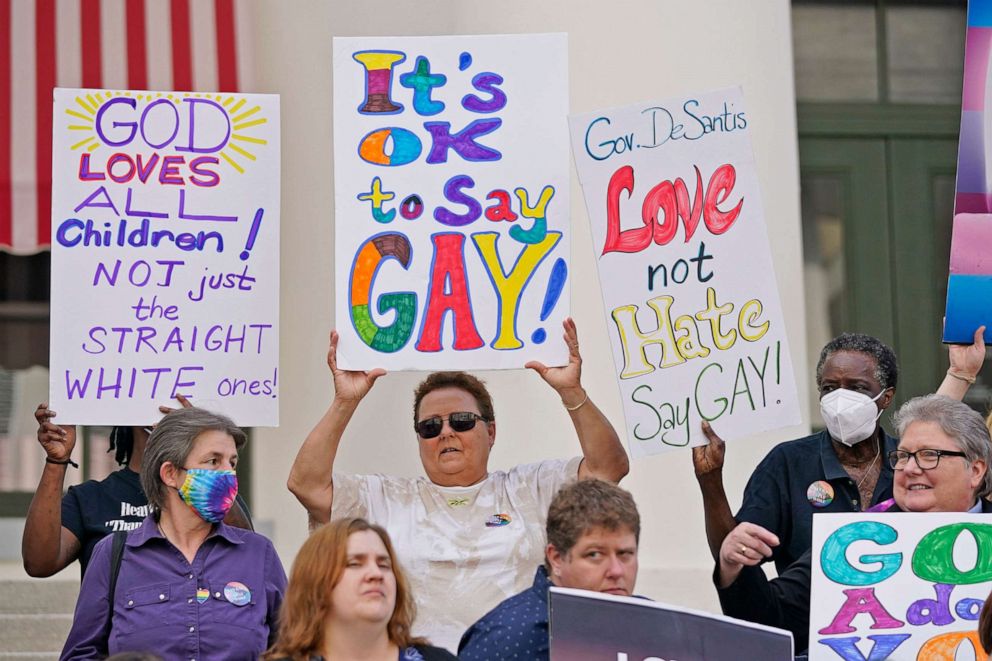
Republican state Sen. Dennis Baxley argued in debate that the bill "doesn't use those kinds of terms. So I don't know how we got that the bill's all about that," referring to Polsky's definition of sexual orientation and gender identity.
Baxley, the bill's sponsor, refused to identify sexual orientation or gender identity during debate on the bill. He later responded "man or woman," as his definition of sexual orientation.
Republican state Sen. Danny Burgess also later added that the standard understanding of the terms is what the law would follow.
Why activists call it "Don't Say Gay"?
During the Senate debate, Baxley slammed the nickname because the bill does not have the word "gay" in it.
However, the bill's nickname from activists has become "Don't Say Gay" and "Don't Say Trans" because advocates have said they believe it would make LGBTQ people taboo once again in classrooms, setting back the progress made by the LGBTQ community in the last few decades.
LGBTQ advocacy organizations say these bills are reminiscent of the "no promo homo" laws of the 1990s that barred educators from discussing LGBTQ topics in school classrooms.
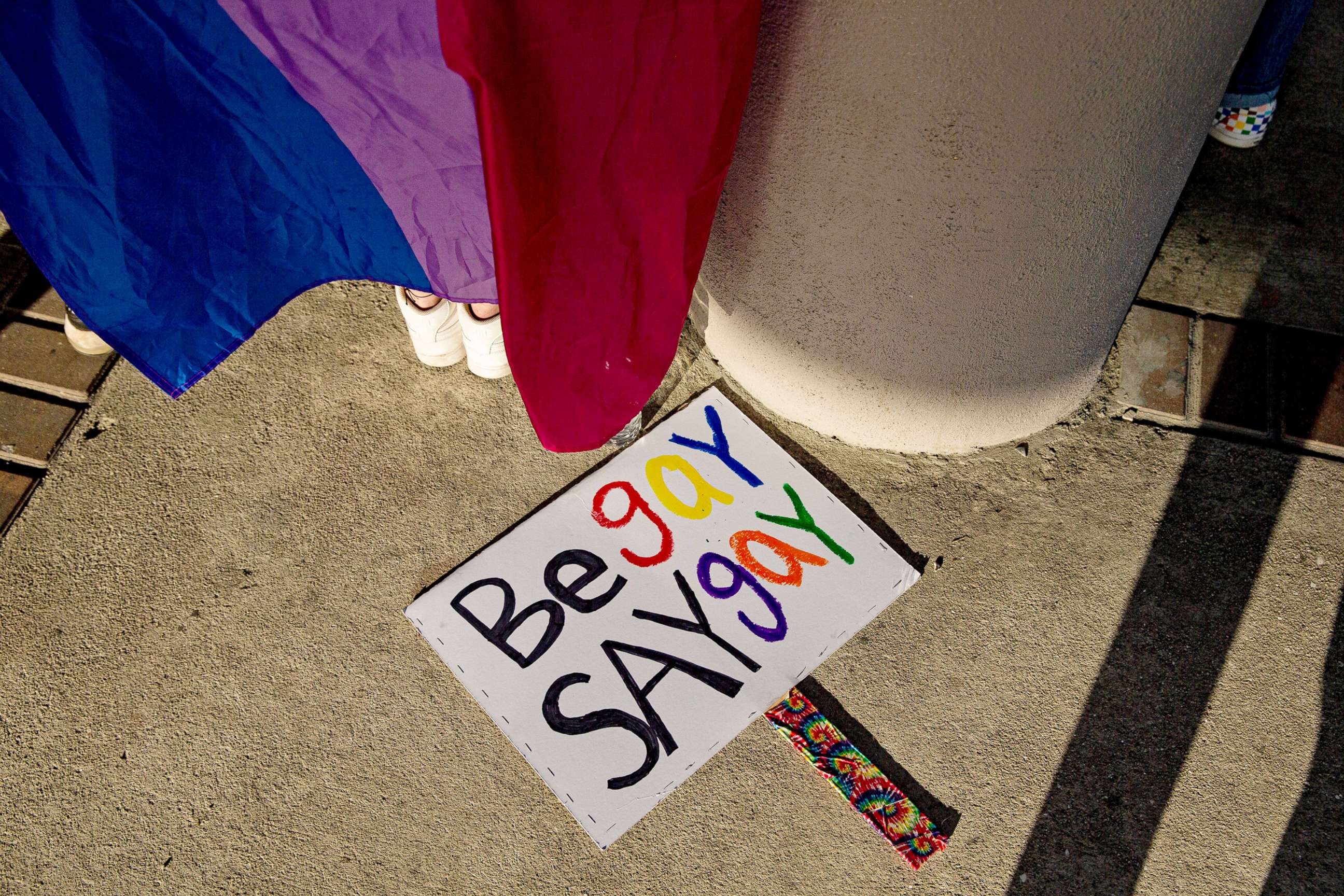
At least four states still have such laws on the books, including Texas, Louisiana, Mississippi and Oklahoma.
"One of the differences between these bills and some of the 'no promo homo' laws that passed in the 1990s is the heavy-handed mandate on parent and family involvement," Melanie Willingham-Jaggers, the executive director of LGBTQ advocacy group GLSEN, told ABC News.
She added: "We've learned that the presence of even one supportive adult makes all the difference. Often, educators who have experience working with LGBTQ+ young people can help navigate working with families in ways that reduce the harm experienced by LGBTQ+ youth."
Who is for and against this bill?
More than 6 in 10 Americans oppose legislation that would prohibit classroom lessons about sexual orientation or gender identity in elementary school, a recent ABC News/Ipsos poll found.
LGBTQ activists and legislators against the bill say that LGBTQ topics are not inherently sexual, inappropriate or shameful and should not be treated as such.
They say banning LGBTQ topics from the classroom will make it harder for LGBTQ youth to feel welcomed and safe in schools. They expect this policy to have negative mental health impacts on LGBTQ youth who are already vulnerable to discrimination and bullying.
"I don't think y'all understand how much courage it takes for these children to show up every day," state Sen. Shev Jones said about LGBTQ youth. Jones is the first openly gay man in the Florida Senate.
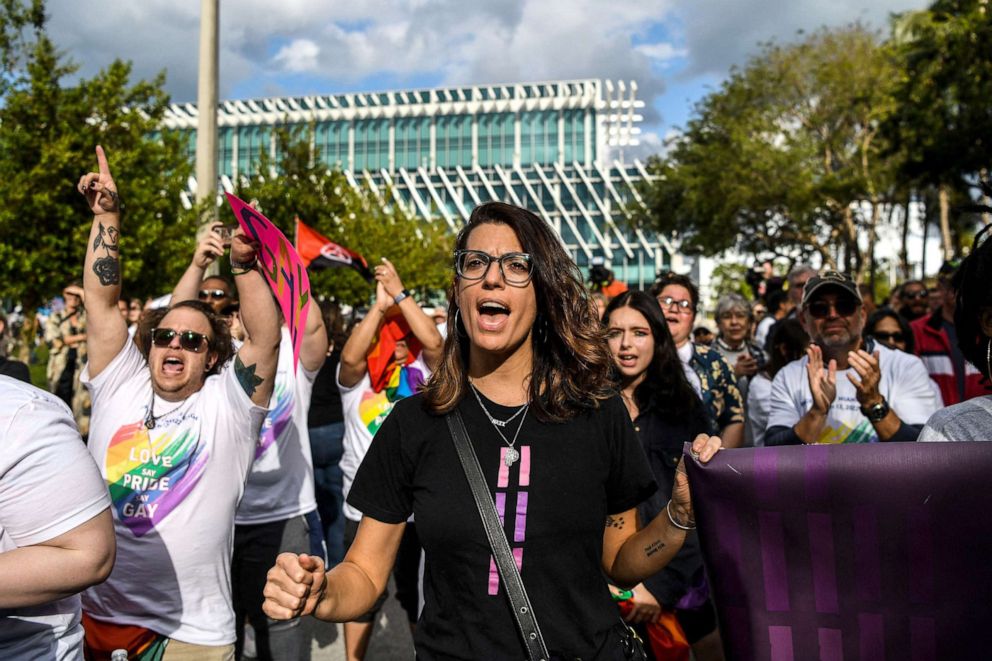
Those in support of the bill say that the bill will give families more input in what their children are learning in schools and that children should not be learning about gender identity and sexual orientation.
"This bill is not intended to hurt students," said state Sen. Kelli Stargel. "This bill is not intended to out gay children. This bill is intended to strengthen the family."
Several amendments meant to clarify what the bill aims to do had been shut down by Republican legislators.
These amendments recommend defining what sexual orientation and gender identity mean; ban instruction that is intended to change a student's identity; specifically, ban sexual content and more proposals.
What else is in the bill besides the LGBTQ content restrictions?
The bill dictates that schools must notify parents of which health care services are offered at the schools and parents can withhold consent or decline services for their children.
There are also parts of the bill that would require parents to be notified if a student uses a new school health resource or monitoring of their mental or physical well-being.
Schools would be required to encourage students to discuss issues concerning their well-being with their parents, or schools must help facilitate such conversations, according to the legislation.
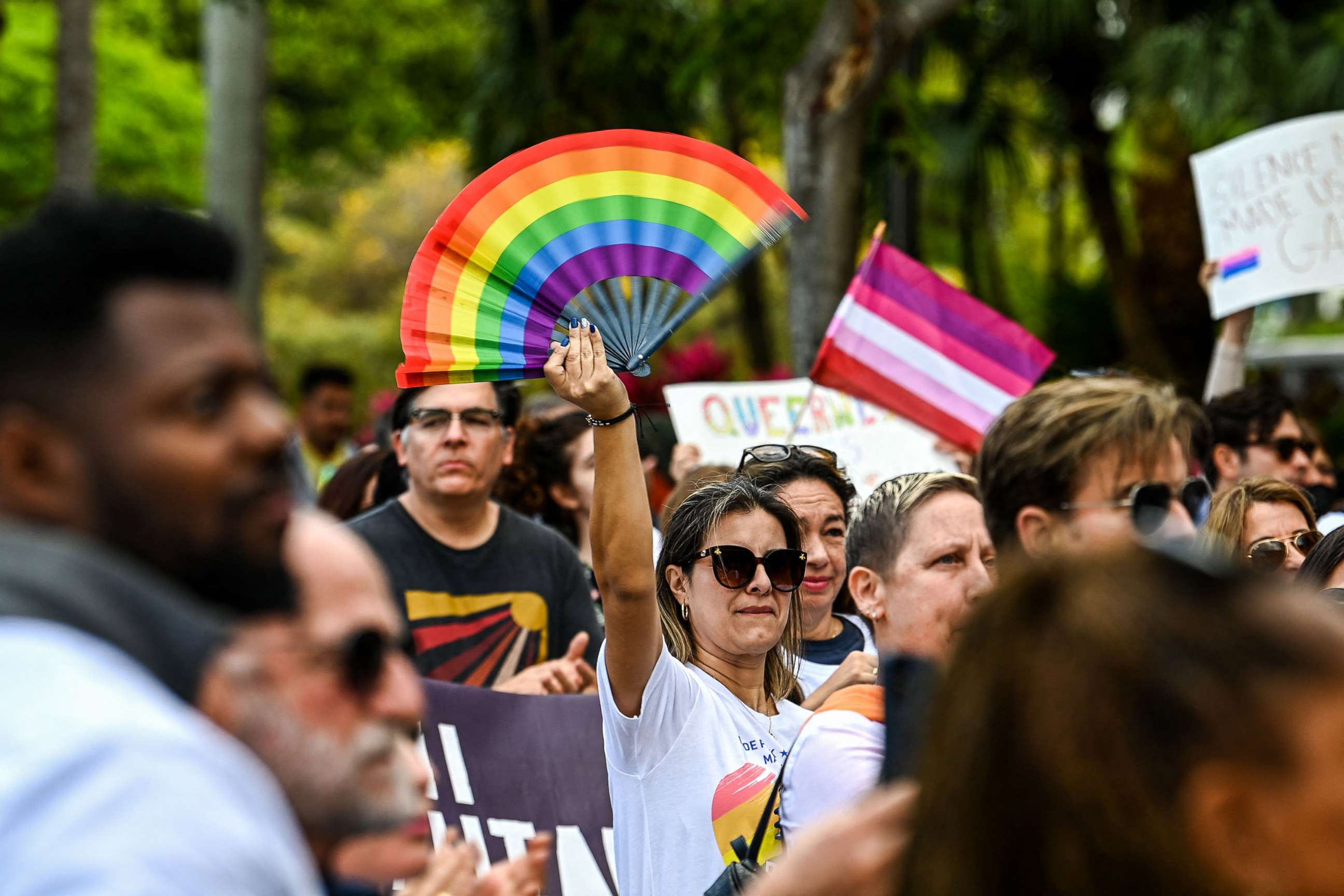
Some activists argue that schools are supposed to be a safe place for children to express themselves -- especially if their home or family does not feel like a safe space.
Activists argue that these provisions could effectively "out" LGBTQ-identifying students to their parents without their consent.
"This bill will erase young LGBTQ students across Florida, forcing many back into the closet by policing their identity and silencing important discussions about the issues they face," said Sam Ames, the director of advocacy and government affairs at LGBTQ suicide awareness organization The Trevor Project. "LGBTQ students deserve their history and experiences to be reflected in their education, just like their peers."
Student health records must also be available to parents.
"We are moving, and have been moving, in a direction of empowerment of parents. That they're supposed to be in charge," said Baxley.
Similar bills backed by Republican legislators are now popping up across the country. Bills that somewhat restrict LGBTQ discussions, books, or curricula from classrooms have been introduced in: Georgia, Tennessee, Oklahoma, Kansas, Indiana and more.
